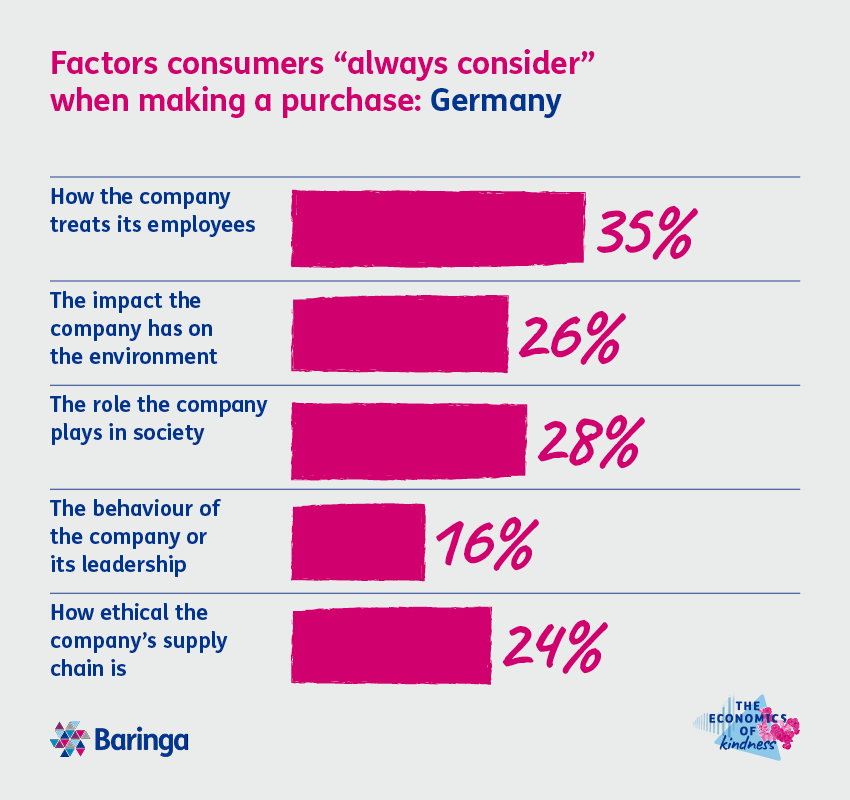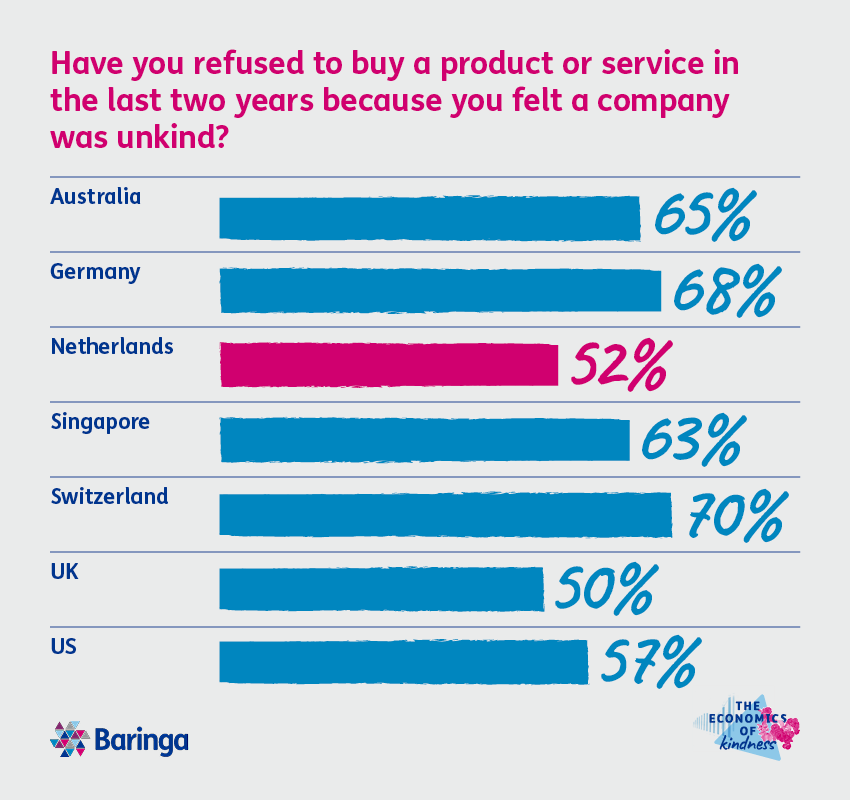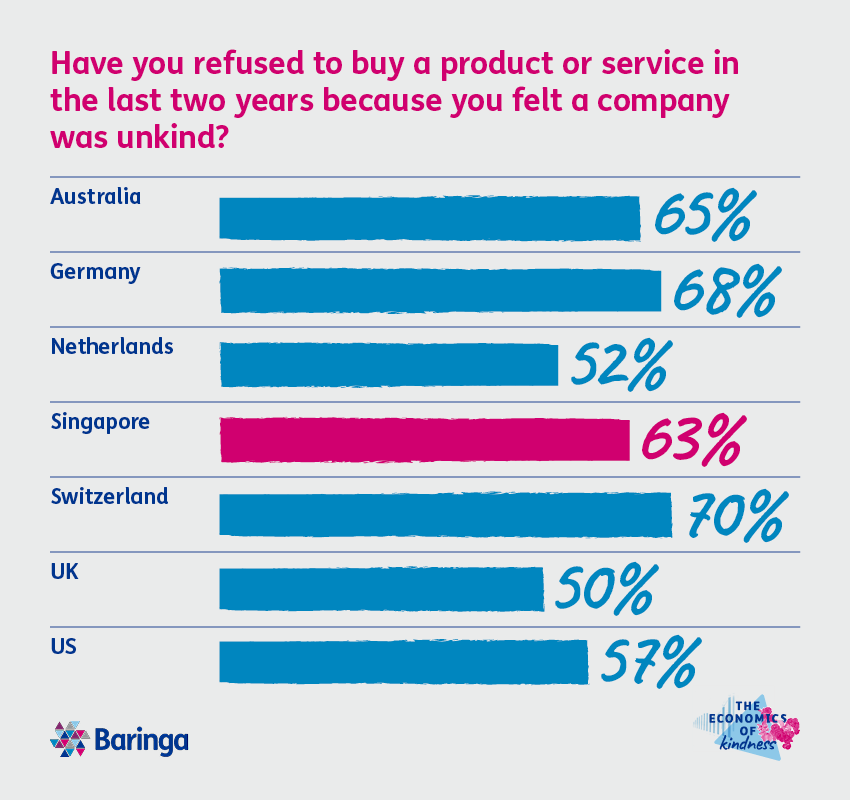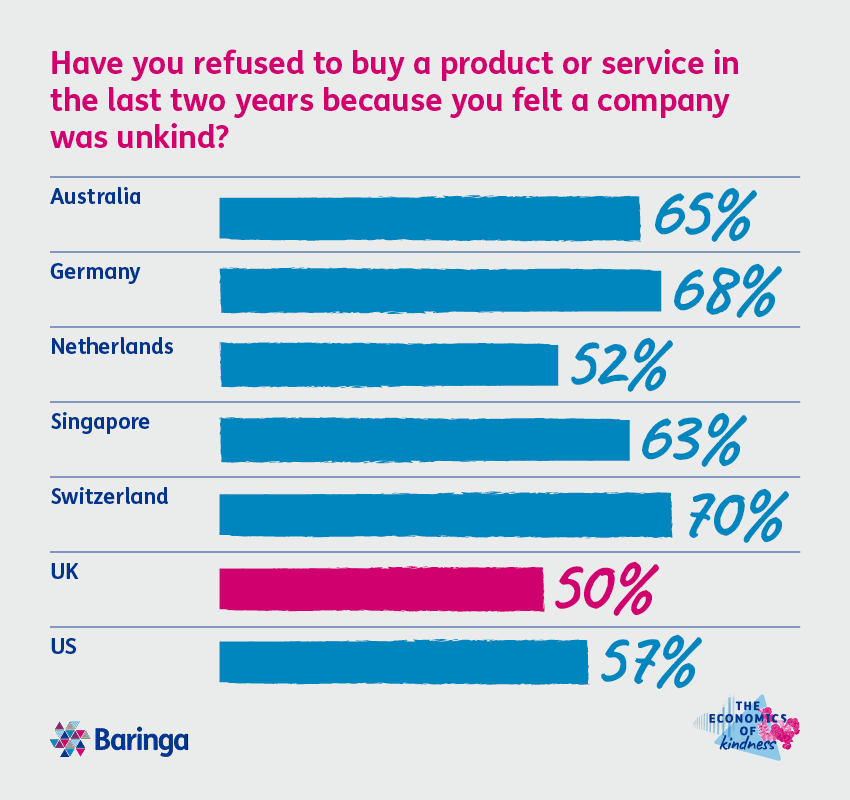
Consumers confirm: kindness pays
20 June 2023
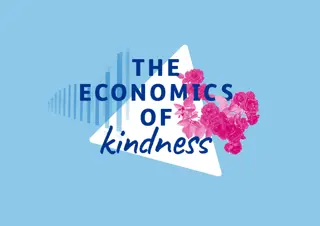
To get the public's view on the economics of kindness, Baringa commissioned a global survey to understand how perceptions of kindness affect purchasing decisions.
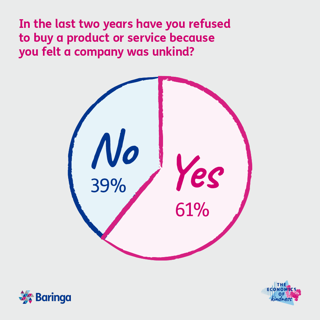
We learned these decisions are made on more than price and service alone. This is a crucial insight for business leaders: when setting strategies, firms should increasingly consider kindness alongside more traditional concerns such as price.
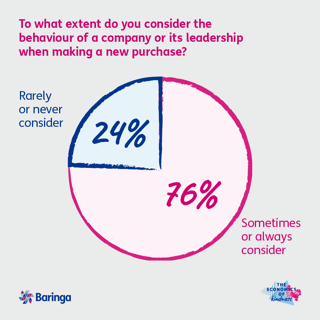
A company's behaviour is one of the factors consumers weigh up when buying products or services.
"In a connected age where the consequences of business decisions are instantly transmitted worldwide, people are faster to make moral judgements about firms, and to act on those judgements."
Guy Dent, partner, expert in Products and Services at Baringa
Kindness in a downturn
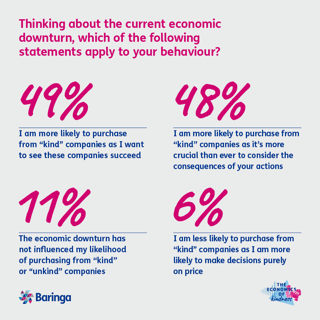
When wallets get stretched, consumers continue to value kindness.
Across the board, a majority of consumers said they were willing to choose a kind company even where there was a financial penalty for doing so.
If a company were known to have the following attributes, how would that make you respond to the company?
| I would avoid buying their product or service if the price was the same | I would avoid buying their product or service even if the price was cheaper | I would not avoid buying their product or service | |
| They were known to treat their suppliers poorly | 45% | 52% | 12% |
| They were known to treat their staff poorly | 44% | 53% | 12% |
| Their customer service is notoriously poor | 45% | 51% | 12% |
| They behave in a dishonest way towards customers* | 44% | 56% | 10% |
| They were known to be involved in cruel behaviour with animals | 45% | 55% | 12% |
| They have acted unethically towards the communities in which they operate | 43% | 54% | 12% |
| They had recently laid off large numbers of staff | 40% | 41% | 25% |
*such as charging hidden fees, or employing misleading information or forceful behaviour
"The assumption is that when times get tough, 'ethical' choices become a luxury and people make decisions based on price. But the increased awareness of unkind business practices might be changing this. As we head into a possible recession, we are seeing more people prepared to take a financial hit to choose kind firms, often in an act of solidarity."
Guy Dent, partner, expert in Consumer Products and Services at Baringa
The international picture
Australia
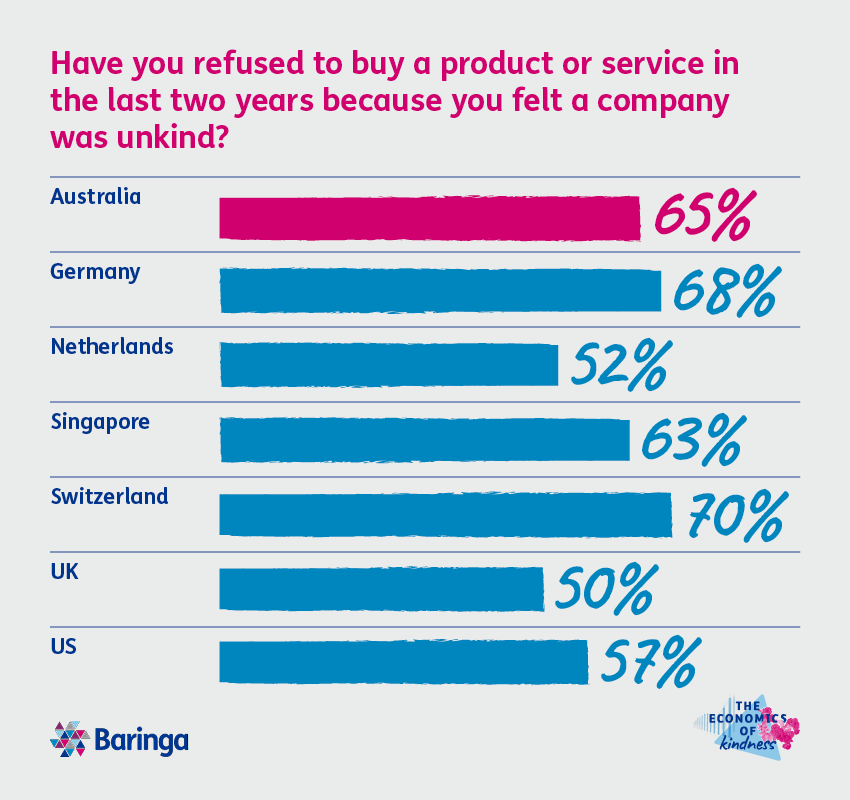
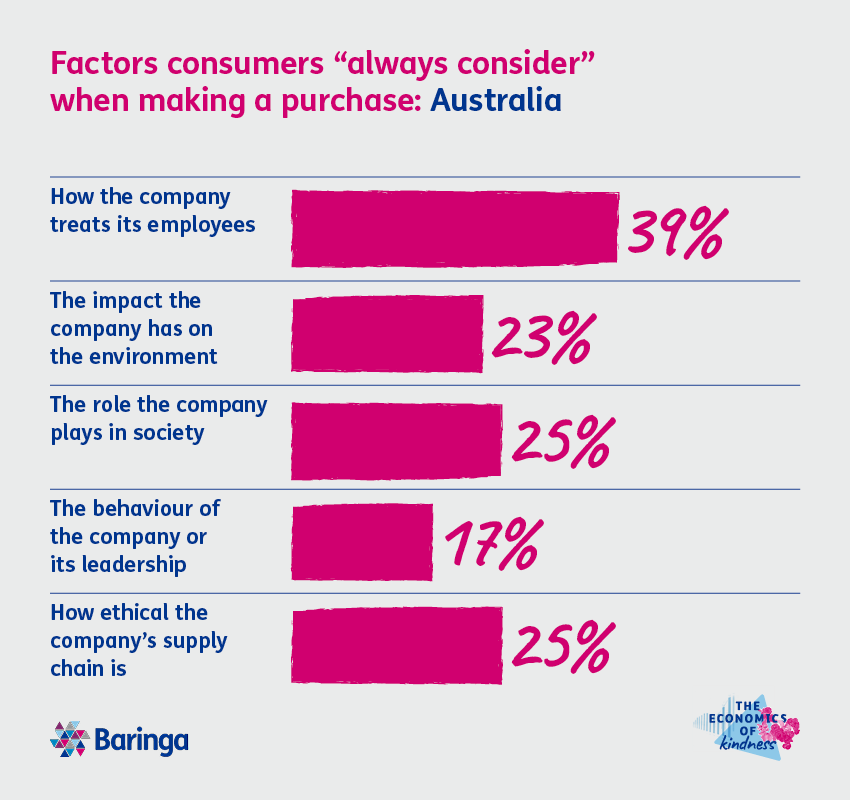
Germany
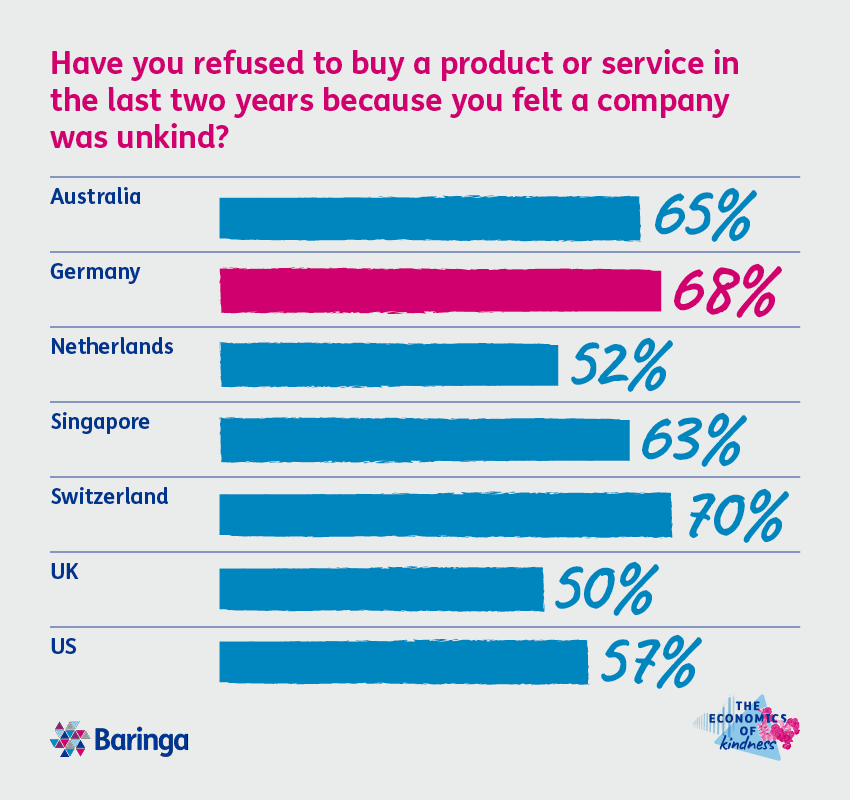
Netherlands
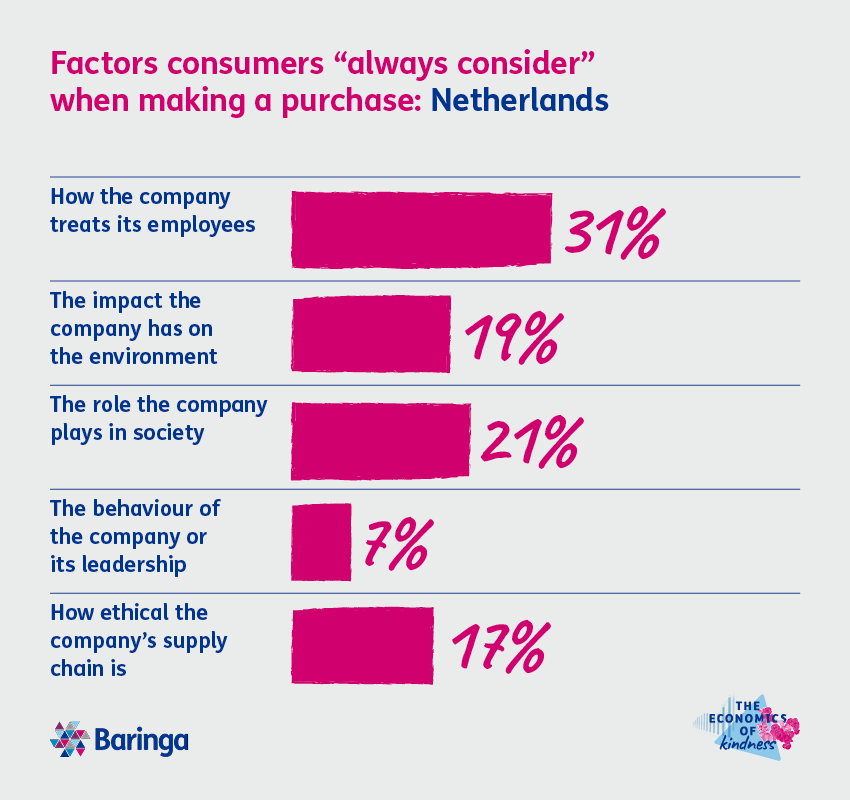
When asked to what extent they consider factors often associated with “kindness” when making a purchase, consumers from the Netherlands consistently the least likely to weigh up a firm's kindness before purchasing.
"Dutch consumer behaviours can be different from those of other nations. Our donations to charity barely dip in tough economic times. We top the charts in terms of unpaid volunteer work. But on the other hand, as regards the private sector, the Dutch quickly adjust spending, with price trumping everything else."
Marcel Volkerts, expert in energy networks at Baringa
Singapore
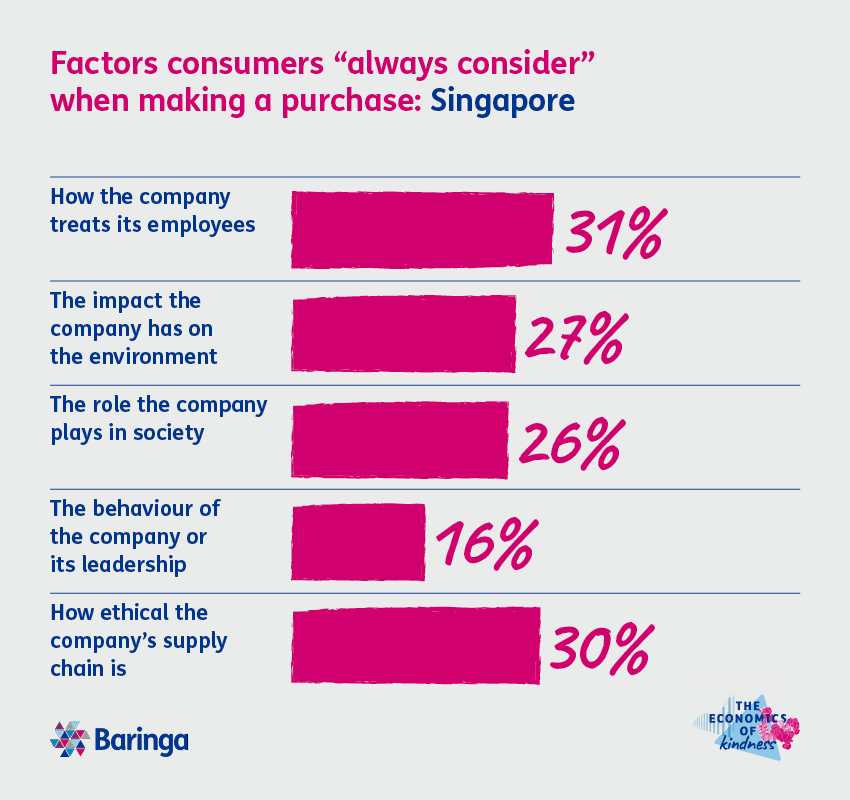
Switzerland
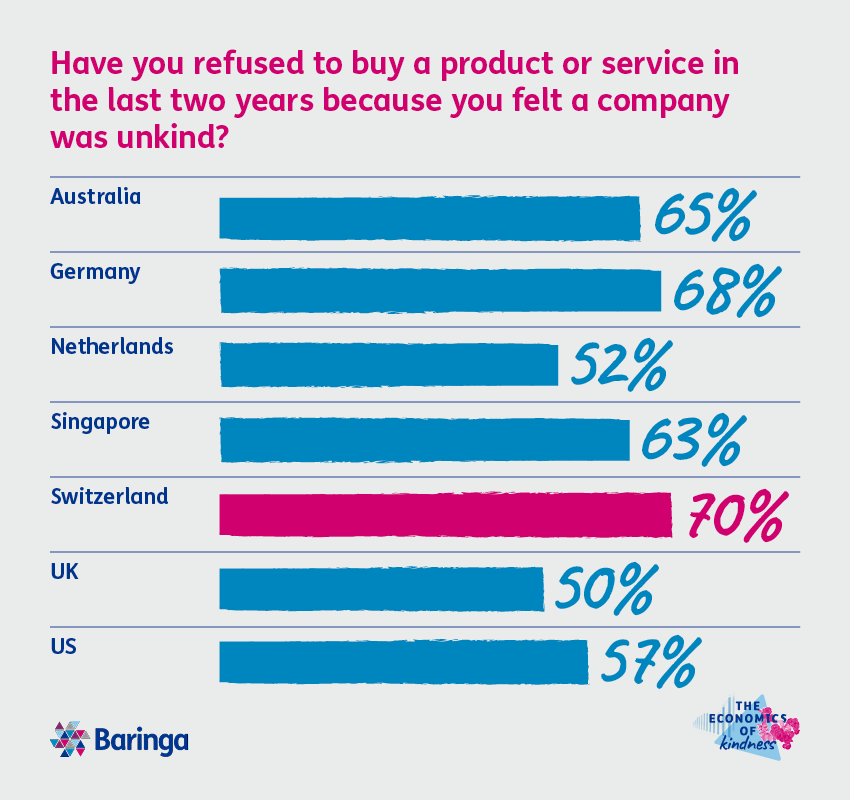
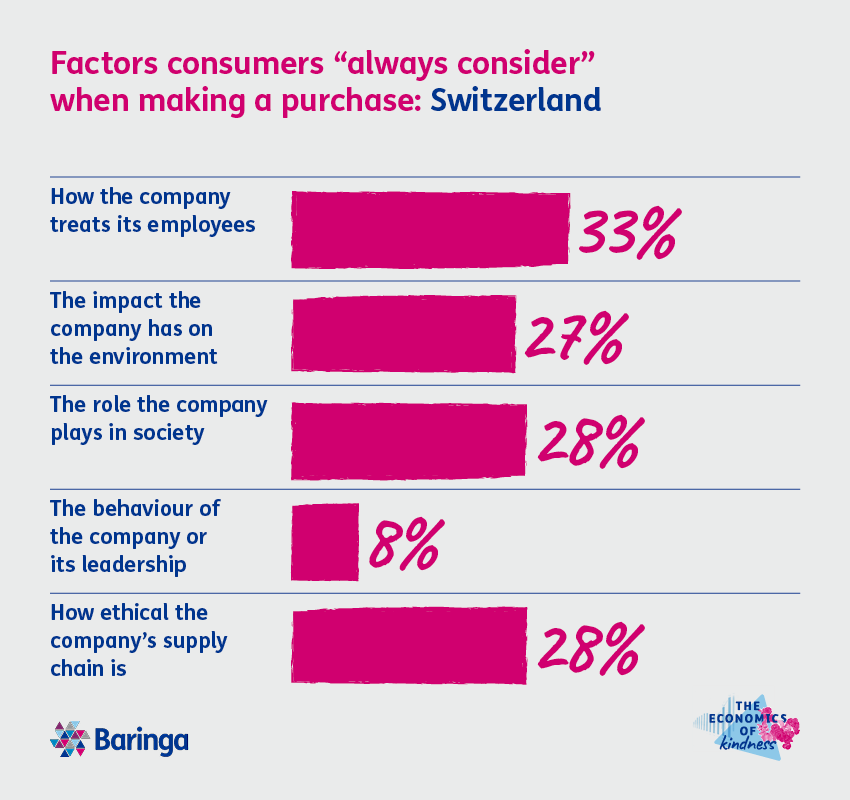
United Kingdom
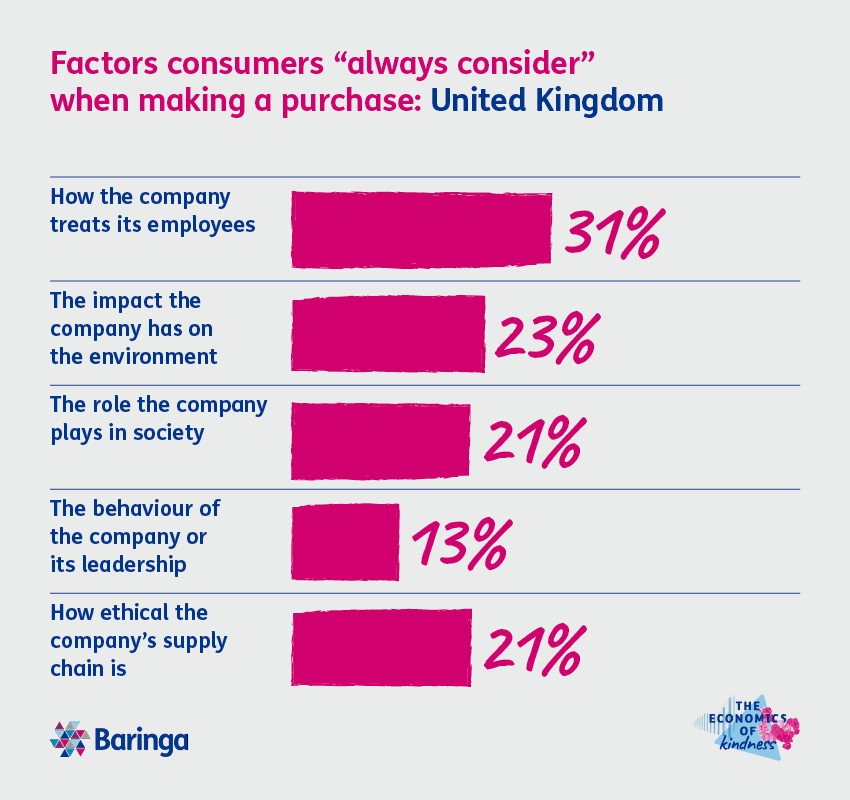
United States
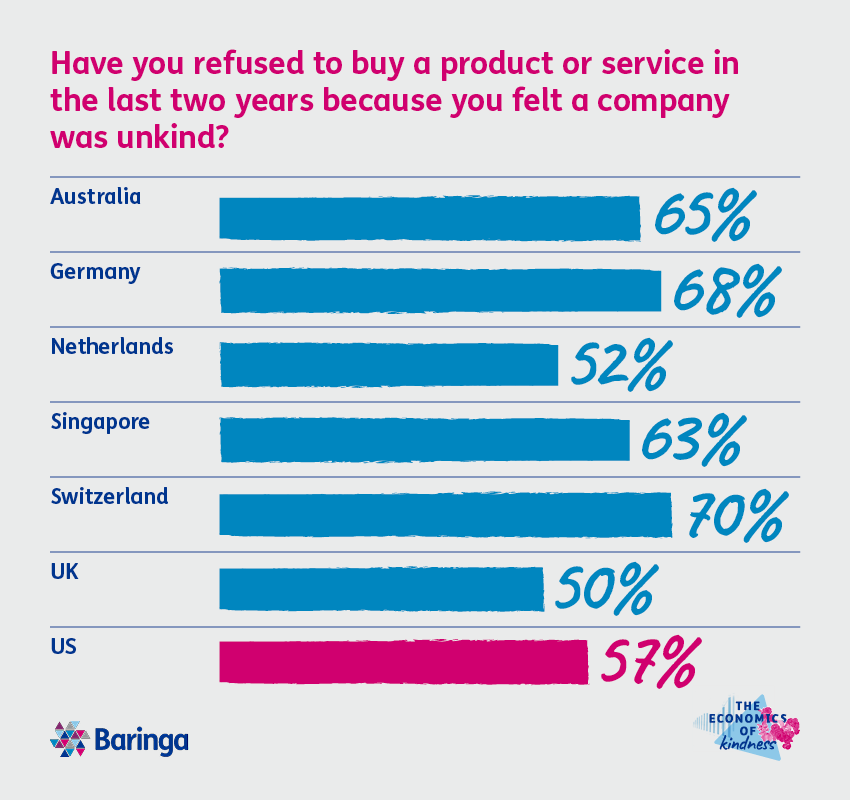
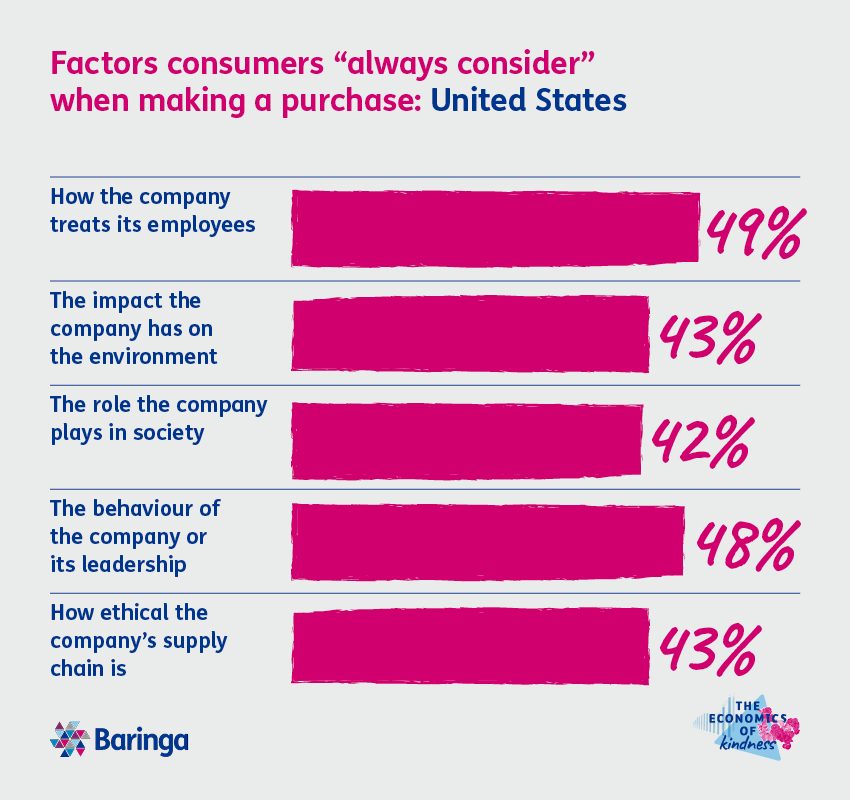
When asked to what extent they consider factors often associated with “kindness” when making a purchase, consumers from the USA were consistently the most likely to weigh up a firm's kindness before purchasing.
"Since its inception the USA has been an activist country. We have a cultural assumption that individuals have the power to make change happen, and this makes American consumers more likely to see and consider the consequences and choices in our individual purchases."
Jeff Hartigan, partner, expert in Consumer Products and Services at Baringa.
Methodology
The research was conducted by independent market research consultancy, Censuswide. The survey was conducted online with 6,028 employed consumers who have either a pension or some kind of investment in Australia, Germany, Netherlands, Singapore, Switzerland, the UK or the US, between 26.04.2023 - 04.05.2023. Censuswide abide by and employ members of the Market Research Society, which is based on the ESOMAR principles, and are members of the British Polling Council.
Related Insights
Trending content in this series
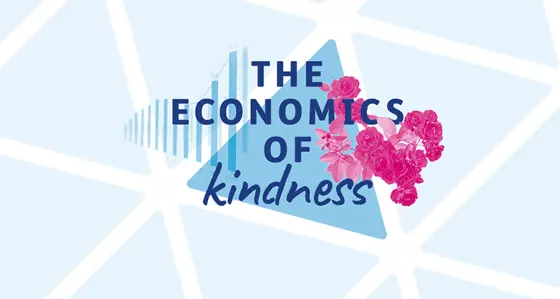
Introducing the Economics of Kindness
At Baringa we’re convinced that, no matter the macroeconomic backdrop, kindness in business really does pay. That’s why we’re taking this opportunity to explore the economics of kindness across four pillars: people, business, leadership and investors.
Read more
People – planet – profit, in that order
The notion of a ‘triple’ bottom line – people first, then planet, then profit – is reshaping how organisations around the world do business. They’re bringing corporate kindness to the fore as we enter a new type of economy, and the businesses that organise themselves in this way will be the ones that succeed.
Read more
Redefining kindness in the workplace
Corporate kindness is all about the impact an organisation has on the world, engaging in responsible practices that benefit their customers, employees, and the communities they operate in.
Read more
Bringing kindness back to the top of the leadership agenda
Should kindness be back at the top of the leadership agenda? Managing Partner Adrian Bettridge discusses how when we lead with kindness, we generate lasting success for ourselves, our clients and our businesses.
Read more
It’s not easy to be a kind leader
Can leaders be kind all of the time? What gets in the way? Ian Peters reflects on the challenges and trade-offs of trying to be kind to all stakeholders.
Read more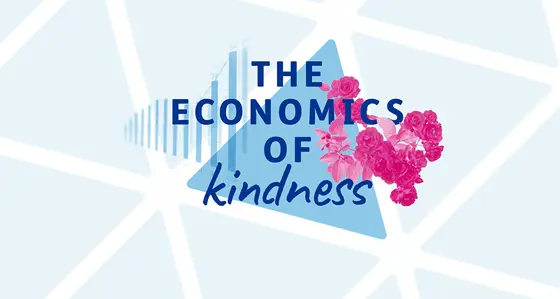
Our Economics of Kindness journey: the story so far
What have we learned about kindness in business and in our public organisations? Does it pay? And if so, how?
Read moreOur Experts
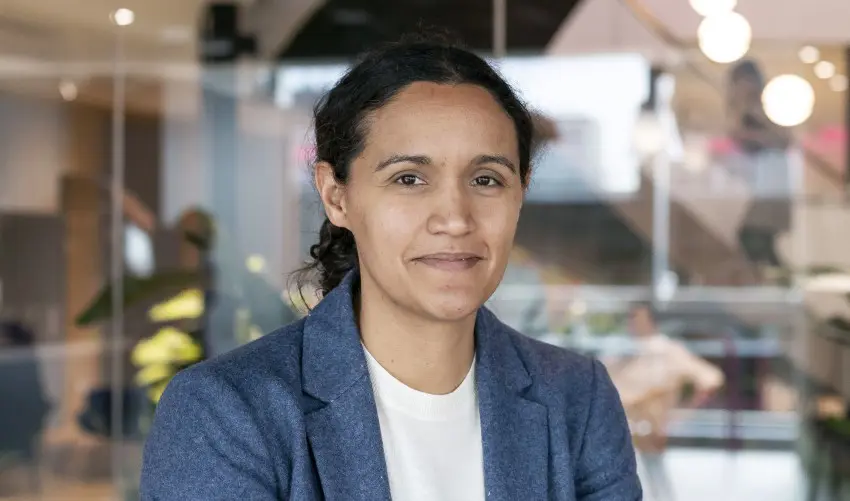
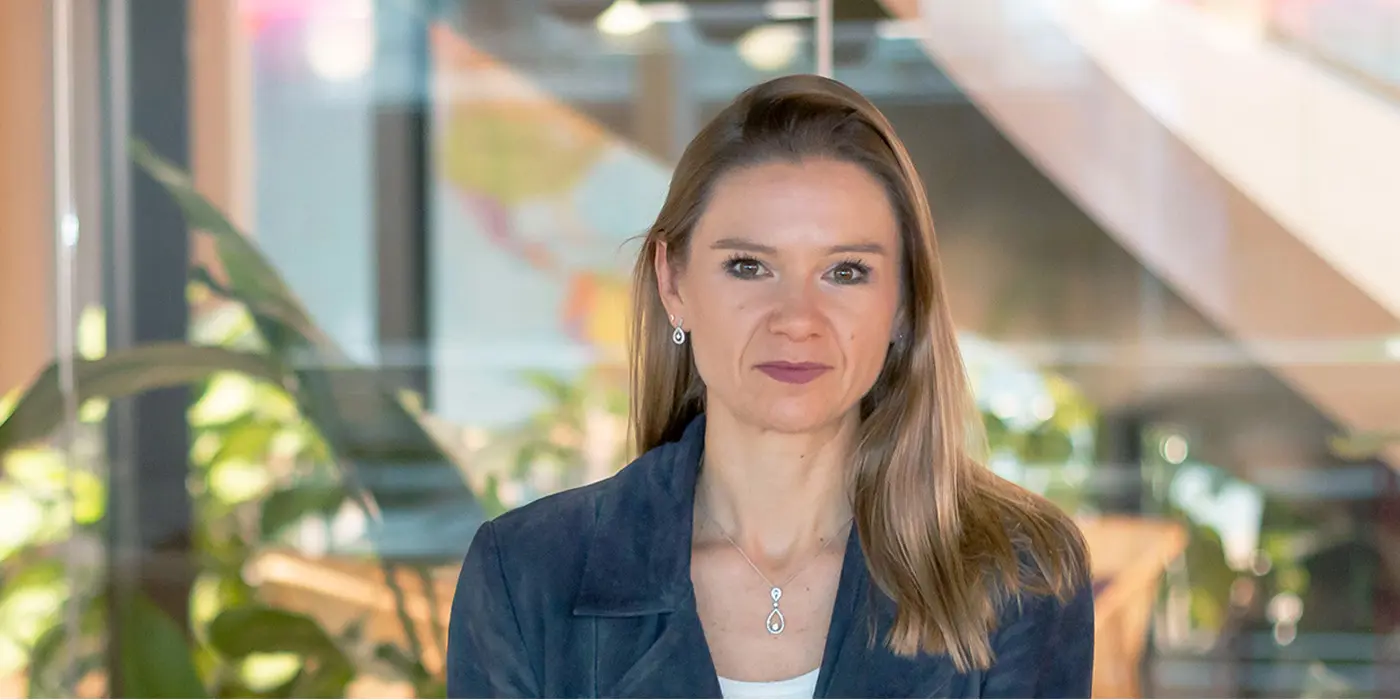

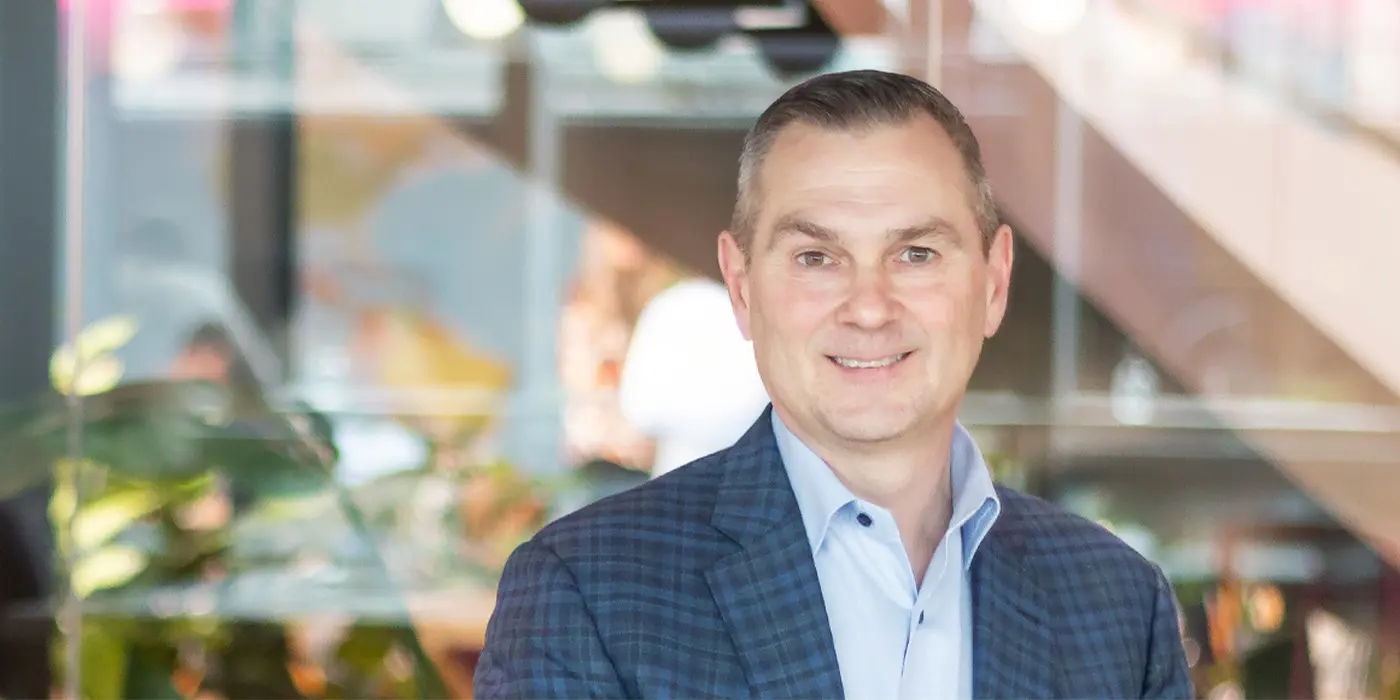
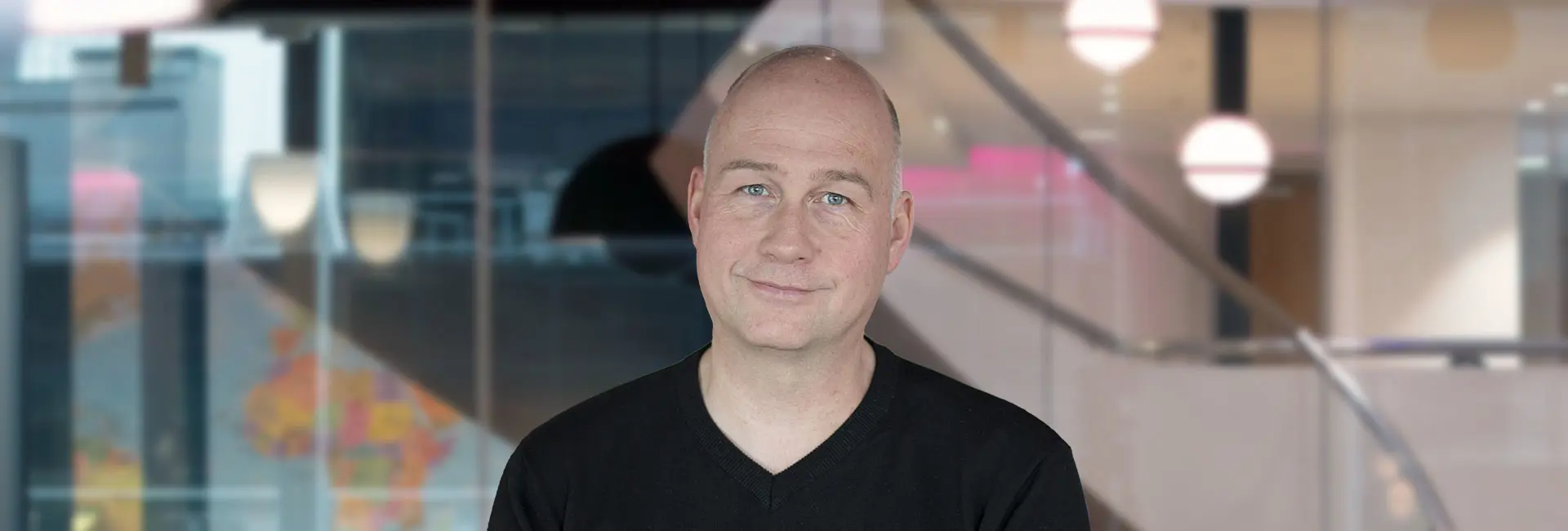
Is digital and AI delivering what your business needs?
Digital and AI can solve your toughest challenges and elevate your business performance. But success isn’t always straightforward. Where can you unlock opportunity? And what does it take to set the foundation for lasting success?
